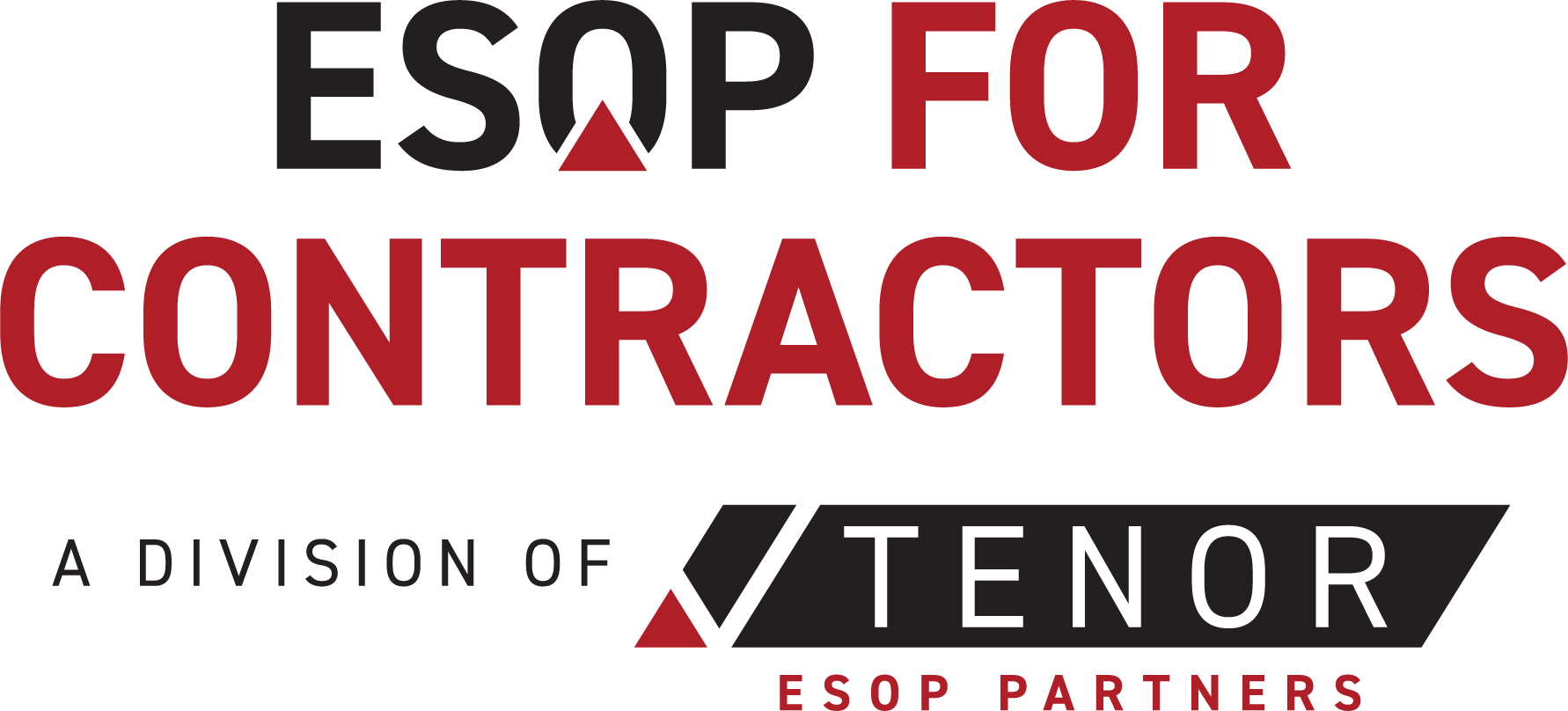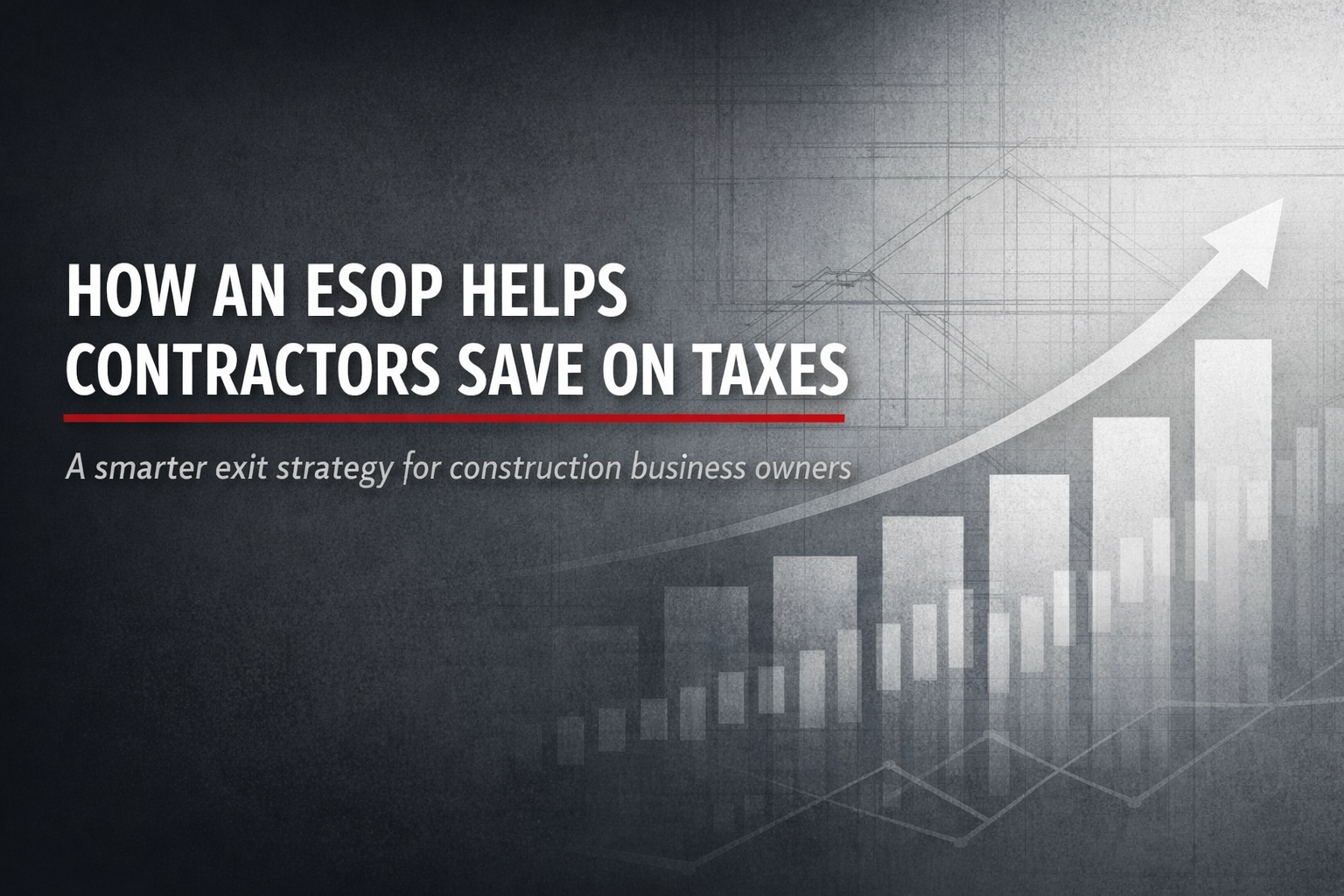Tax Burden Impact on Contractor Business Growth
Last Updated: 12/20/2024
Written by: Gary Gray
The True Cost of Taxes in Contracting
As a contractor, you understand profit margins better than most business owners. But what many contractors don't realize is how significantly their tax structure affects their ability to grow. It's not just about what you pay in taxes – it's about how your tax obligations impact every aspect of your business operations.
Beyond the Bottom Line
When you're focused on delivering projects and managing crews, taxes might seem like just another cost of doing business. But for contractors, tax implications run deeper than most industries realize.
The Hidden Growth Barrier
Every dollar paid in taxes is a dollar you can't invest in new equipment, additional crews, or expanded project capabilities. While this seems obvious, contractors face unique challenges in how tax burdens affect their growth potential:
Equipment Investment Cycles: When tax obligations limit your ability to upgrade or expand your fleet, you might miss opportunities for larger or more profitable projects.
Workforce Expansion: Growing your team requires significant upfront investment – training, certifications, and new equipment. Heavy tax burdens can force you to pass on growth opportunities simply because you lack the necessary capital.
Bonding Capacity: Your available working capital directly affects your bonding capacity. Higher tax burdens reduce the working capital you could otherwise use to increase your bonding limits and pursue larger projects.
The Contractor's Tax Challenge
Building Growth Capacity
Working Capital Management
Effective tax planning isn't just about reducing your tax bill – it's about timing your obligations to align with your business cycles. This alignment helps maintain healthy working capital levels throughout the year.
Bonding Optimization
By structuring your business taxes strategically, you can present a stronger financial position to bonding companies. This often translates directly into increased bonding capacity and access to larger projects.
The Path to Tax Efficiency
Modern contractors are discovering that certain business structures offer significant advantages in managing tax burden while supporting growth. These approaches can:
- Better align tax obligations with cash flow cycles
- Create more opportunities for strategic reinvestment
- Support stronger bonding relationships
- Provide flexibility for workforce development
Looking Forward
The construction industry continues to evolve, with increasing demands for capital investment in equipment, technology, and workforce development. Your tax strategy needs to evolve as well, supporting rather than restricting your growth potential.
The Next Steps
Understanding how taxes affect your growth potential is just the beginning. The key is developing a structure that works with your business cycles rather than against them.
Connect with our team to learn how leading contractors are optimizing their tax structure to support sustainable growth.
How to get started
Getting started with an Employee Stock Ownership Plan (ESOP) can transform your contracting business, unlocking potential for growth and ensuring lasting value for everyone involved. At ESOP for Contractors, we understand the intricacies of the process, from assessing your company's current status to designing a tailored ESOP that aligns with your goals. Our leadership team knows firsthand how to create winning strategies that benefit both owners and team members alike. If you're curious about how an ESOP could enhance your business's future, we invite you to reach out for a free consultation. Let’s explore how we can help you achieve sustainable success together!
Your Point Of Contact

Gary Gray
ESOP for Contractors was founded by Gary Gray, an experienced ESOP CEO who has firsthand experience in navigating the post-transaction landscape, maximizing the value of an Employee Ownership Culture and ultimately achieving nearly 3x growth in five years following the ESOP transaction. At ESOP for Contractors, we have helped owners craft the perfect kickoff message to announce the new business structure, facilitated the formation of effective boards with independent directors, provided the quick resource to answering the tactical questions that quickly emerge in the new ESOP environment and successfully executed succession plans on the selling shareholders' timeline.
Book a Free Consultation
Interested in a free consultation for your contracting business? Send us a message - We’re here to help.
ESOP FAQ's
What is an ESOP?
An ESOP is a qualified retire plan that invests solely in the stock of the sponsoring company. Over time, employees accumulate shares, which they can cash out upon retirement, departure, or under other circumstances defined by the plan.
How does an ESOP work?
- Formation of the ESOP Trust: A company sets up an ESOP trust, which will purchase the shares on behalf of employees. The company typically funds this trust through future earnings.
- Financing the ESOP: The ESOP trust can buy shares solely through future earnings or by borrowing money. The company then repays the loan, with tax-deductible contributions, over time.
- Allocation to Employees: Shares in the ESOP trust are allocated to individual employee accounts, based on total employee compensation.
- Vesting Schedule: Employees earn the right to the shares over a vesting period, which can range from three to six years or more, incentivizing them to stay with the company.
- Exit and Distribution: When employees leave the company, retire, or otherwise separate, the company buys their shares back at fair market value, providing them with a significant retirement benefit.
Why should I consider an ESOP for my business?
- Succession Planning: ESOPs provide an orderly and flexible exit strategy for business owners who want to retire without selling to outside buyers.
- Tax Advantages: ESOPs offer substantial tax benefits. Contributions used to repay the ESOP loan are tax-deductible, and owners selling to an ESOP in a C corporation can defer capital gains taxes under certain conditions. An S-Corp ESOP structure offers substantial tax advantages, including the ability to eliminate or greatly reduce federal income taxes, make deductible contributions to the ESOP, and potentially defer capital gains tax on stock sales through certain strategies.
- Employee Motivation and Retention: ESOPs can boost employee morale, productivity, and loyalty because employees have a direct stake in the company’s success.
- Preservation of Company Culture: Selling to an ESOP ensures that the business remains in the hands of those who understand and value its culture, which is often a key concern for founders.
- Access to Financing: ESOP-owned companies may have better access to financing due to tax advantages, which improve cash flow and make loan repayment more manageable.
What's the role of consultants for an ESOP?
Determining if an ESOP is a Good Fit
- Initial Feasibility Analysis: Consultants will conduct a feasibility study to determine if an ESOP is viable for the business. This includes reviewing the company's financial health, valuation, and assessing the impact on cash flow.
- Understanding Objectives: Consultants work closely with business owners to understand their goals, whether they are focused on succession planning, employee engagement, or tax efficiency.
- Employee and Cultural Fit Assessment: Consultants evaluate if the company's culture and employee base are well-suited for an ESOP. Employee education and buy-in are critical for ESOP success.
Setting Up the ESOP
- Structuring the ESOP: Consultants help design the ESOP structure, including defining eligibility, vesting schedules, and financing methods.
- Valuation and Financing: Consultants coordinate the valuation of the company’s stock and arrange financing options if the ESOP requires external funding, such as bank loans or seller financing.
- Legal and Compliance Guidance: Setting up an ESOP involves navigating complex legal landscapes. Consultants work with legal advisors to draft the ESOP plan documents and ensure compliance with regulations.
- Communication and Employee Education: Consultants help communicate the ESOP to employees, explaining how it works and the benefits, fostering a sense of ownership and engagement.
- Ongoing Management and Monitoring: After the ESOP is established, consultants can assist with ongoing administration, including annual valuations, compliance checks, and managing the repurchase obligation.















